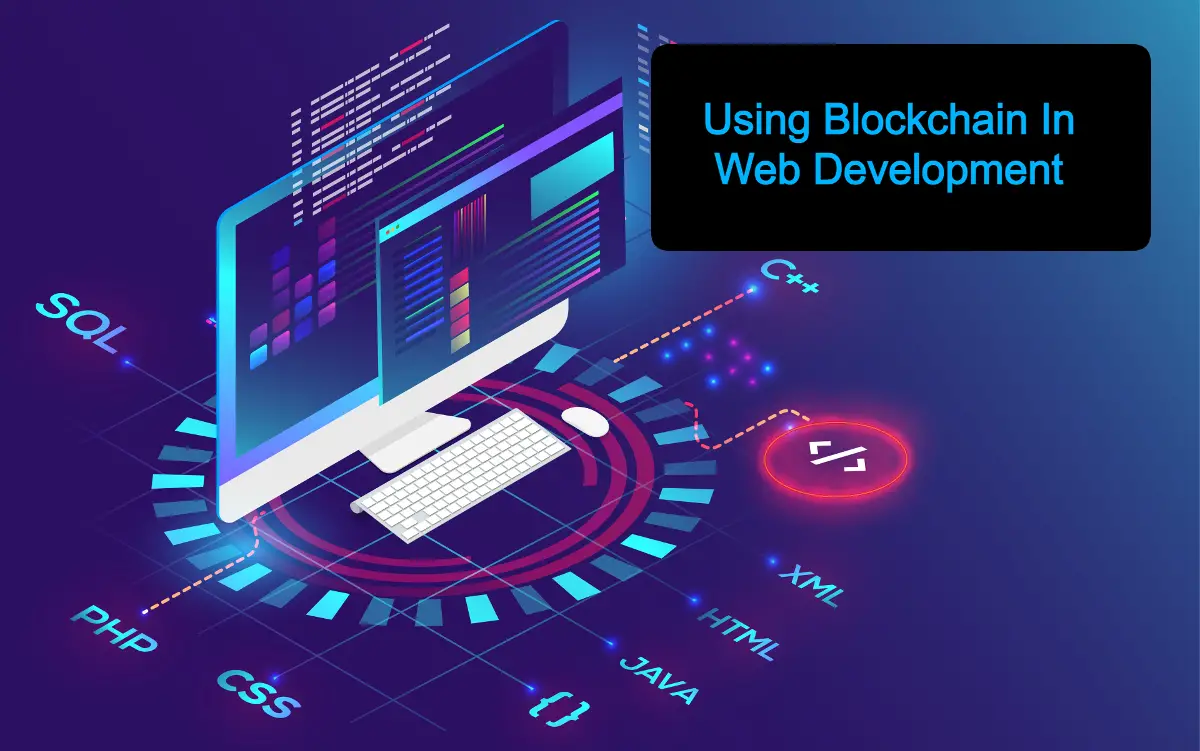In this article, we are going to focus on one of the most exciting items on blockchain’s agenda: web development. If you’re curious about how these two sectors connect, this post will shed some light on the matter.
Editors Note: We only try to provide important and relevant information for our web design and development readers. This topic is definitely something to learn more about. Additionally, see our posts regarding cryptocurrency design assets and the best cryptocurrency WordPress themes.
Most people became familiar with blockchain in the context of digital currencies. Blockchain came into the limelight in 2009 when Bitcoin emerged on the financial scene. Both increased in popularity along with the rise of the cryptocurrency industry.
Therefore, for the uninitiated, blockchain and crypto became one and the same thing. If you ask anyone about blockchain, they’ll probably tell you it’s the technology that enables crypto users to buy Bitcoin
online and offers an alternative to conventional money.
While that may be true, it’s not even half of blockchain’s story. What many don’t know is that since the launch of Bitcoin, blockchain technology has taken a life of its own, with its applications expanding far beyond the limited sphere of digital assets.
This highly flexible and versatile technology has penetrated multiple sectors and continues to drive
breakthroughs in areas like finance and banking, supply chain management, healthcare, real estate, transportation, entertainment, and energy.
Clearly, blockchain holds immense power and transformational potential and can become a true game-changer in the future. As a technology that is still in its infancy, Blockchain has only started its revolutionary journey.
We’ll discuss more of what blockchain is in a moment. But first, look at the benefits it can have on web development.
How can blockchain improve web development?
It’s pretty obvious that blockchain can be a very useful tool in the right hands. But how exactly does this revolutionary technology and web development fit together?
Blockchain’s features can improve many key processes in web development. Although developers have only started to test the ground in this respect, the results so far have been more than promising. So, here’s what you need to know about this pairing.
Better Website Security

Cyberattacks have been running rampant in the past few years and companies big and small have fallen victim to hacking, data breaches, and social engineering scams.
According to a 2022 Hacker-Powered Security Report, vulnerabilities continue to grow at alarming rates, with ethical hackers being able to identify over 65,000 security gaps in 2022. This is an increase of approximately 20% from the previous year.
As cyberattacks increase, so does the cost of prevention and protection. This expense is expected to rise to $8 trillion in 2023 and reach $10.5 trillion by 2025. The fact that security risks have grown tremendously over a short period of time means developers must be ready. Developers must find new solutions to eliminate vulnerabilities and keep threats at bay.
Enter blockchain technology. Although blockchain is not completely hack-proof, as many people mistakenly believe, the cryptographic algorithms they employ to encrypt transactions make records almost unhackable.
Therefore, it’s less likely for malicious entities to get hold of your personal data. And, you don’t need to rely on a third party for data storage either.
Web developers can leverage blockchain technology for data storage purposes. By doing this, there can be more assurances that the website is secure, including sensitive data collected from users.
Improved User Experience

We all know that speed is of the essence when it comes to website navigation. Tech advancements have exacerbated people’s need for immediacy, making users more impatient than ever.
Ideally, a website should be able to load in 1 to 2 seconds. Anything longer than this will cause visitors to leave the page, with abandonment rates of up to 87%.
When applying Blockchain capabilities to web development, provides more responsiveness to websites. Doing this also allows designers to build real-time data websites that eliminate lag time. In turn, the possibility to receive information is almost instantly.
Websites that utilize blockchain technology work flawlessly, provide quicker response times, and ultimately a better user experience. It’s a win, win for all parties.
Safer Online Payments

These days, most sites include online payment functionality, regardless of the type of products/services they provide. From credit and debit cards to e-wallets and bank transfers, the more payment options they offer, the better.
It’s a well-known fact that websites with a wider selection of payment options secure more online purchases. Given the fact that cyberattacks have increased significantly in recent years, consumers are becoming more concerned about conducting online transactions.
Consumers are not comfortable sharing bank credentials and other sensitive information online, especially if it’s a first-time purchase. As a result, a growing number of websites have started integrating crypto payments into their systems.
Blockchain-powered currencies provide a safer and more efficient alternative to conventional payments, giving users and website owners peace of mind.
Digital Marketing

Marketers can take advantage of this innovative technology to build better relationships with clients and partners by boosting transparency and trust for their brands. Therefore, blockchain can improve digital marketing.
Additionally, tracking marketing campaigns and assessing the efficiency of the strategies they employ becomes a lot easier with the support of blockchain technology.
There’s definitely more to blockchain than meets the eye, and its expanding use cases in web development stand as proof of that. However, web developers are in the experimental phase at the moment, meaning there’s going to be a lot more development in this area in the years to come.
What is Blockchain?
First thing first, we have to start by explaining what blockchain really is and what it does to set the record straight and clear up any confusion that might reside in people’s minds.
A Blockchain is a digitally distributed and decentralized public ledger that records and tracks transactions and data across a peer-to-peer network.
If this sounds a bit too sciency, then think of it as a huge digital database comprised of a multitude of blocks that serve as virtual containers filled with sets of information. These “blocks” are strung together and are shared among the computers or nodes that form a network, ensuring transparency, immutability, and traceability.
Every transaction needs to be validated by specific nodes in the network, employing a certain computational process and is then included in a block. When that block is completed, it’s closed and linked to the previous one, forming a chain of blocks, hence the name blockchain.
From this description, it becomes clear that blockchain technology can provide a host of benefits, as follows:
- Decentralization – the technology provides a trustless environment where no single entity holds control.
- Transparency – the lack of a central authority and the fact that any stakeholder in the network can access and view transactions ensure full transparency.
- Enhanced security – the consensus mechanism based on cryptography and decentralization makes blockchain inherently secure.
- Reduced costs – given that blockchain removes the need for a third party or middlemen and reduces paperwork and errors, overhead costs can be greatly reduced.
- Effective Traceability: Every transaction is recorded on the blockchain permanently, creating an information trail that no one can tamper with and thus ensuring traceability.
- Improved speed and efficiency – blockchain brings automation to the table and streamlines processes through smart contract functionality.
Summary
The reality of blockchain impacting web development is here now and being prepared to pivot with these advancements can set designers and developers up for success. Please comment below on your experience with this state-of-the-art technology.

